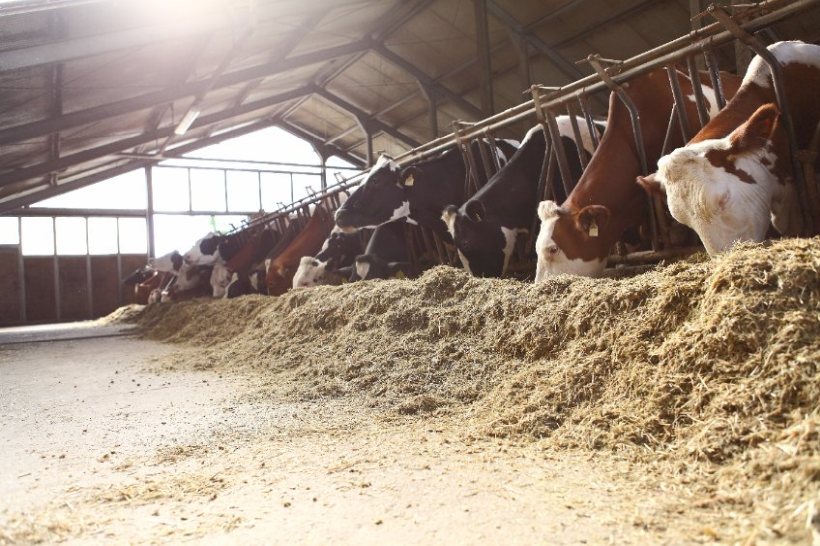
The government must better support farmers in slashing methane emissions, as the UK is lagging behind the EU, Brazil and Australia in doing so, a new report says.
The UK government cannot meet its pledge to reduce methane emissions by 30% by 2030 without a plan to better support farmers, the Green Alliance report says.
Almost a year since the UK signed the Global Methane Pledge at COP26 in Glasgow, the government has made "little headway" in showing how it will reduce the emissions.
Figures show that the farming and land use sector represents around 58% of methane produced in the UK.
The report finds the industry could reduce methane by at least 5% over the next decade if the Food Standards Agency accelerated the approval of the methane reducing supplement Bovaer/3-NOP.
The supplement is currently approved in the European Union, Brazil, Chile, and Australia.
The thinktank says an additional 4% of methane reductions from the sector could be achieved through better slurry management.
In addition, farmers could be supported to install technology to capture methane from slurry stores, as pioneered by the Cornish company Bennamann Ltd.
While land use is responsible for the majority of UK methane, the report finds that reductions could also be made in the energy and waste sectors.
Dustin Benton, policy director at Green Alliance, explained that the UK’s major farming organisations, and most farmers, were trying to get to net zero.
"For most, this means cutting methane emissions," he said, "But right now, they’re on their own.
"Unlike in New Zealand, Australia, the EU, Brazil or Chile, the government isn’t helping farmers to cut methane emissions, despite ample evidence that this can support farm productivity”.
Martin Lines, chair of the Nature Friendly Farming Network, said there were 'many opportunities' to reduce methane while improving farming systems.
"As this report highlights, emissions can be significantly reduced through farm-level best practice, adopting new technology and addressing our energy and waste inefficiencies.
"The UK must support farmers in achieving this and show unwavering commitment to its COP26 pledge”.
